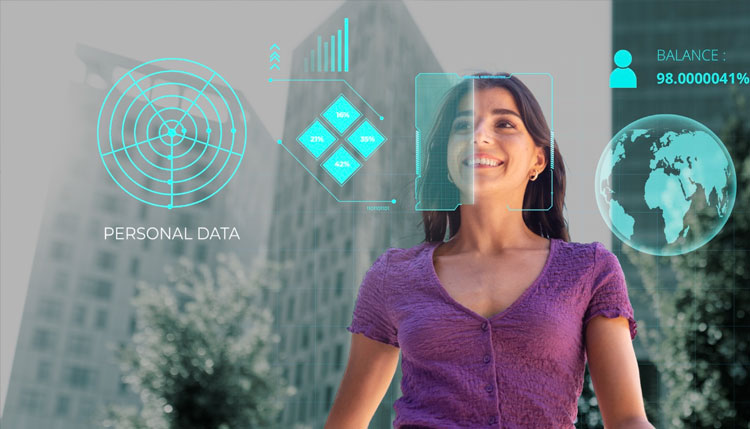
Integration of AI in Biometric Authentication
In the rapidly evolving landscape of digital security, the integration of Artificial Intelligence (AI) in biometric authentication represents a significant leap forward. Biometric authentication, the science of recognizing individuals based on physical or behavioral traits, has been revolutionized by AI, enhancing its accuracy, efficiency, and application scope. This blog delves into how AI is shaping the future of biometric systems, focusing on facial recognition, fingerprint analysis, and voice identification, while also addressing the ethical and privacy implications of these advancements.
Revolutionizing Facial Recognition with AI
Facial recognition technology has become ubiquitous, from unlocking smartphones to airport security checks. AI algorithms have transformed facial recognition systems, making them more accurate and adaptable. These systems now utilize deep learning, a subset of AI, to analyze and learn from a vast array of facial data points. This allows for more accurate identification, even in challenging conditions such as varying lighting or angles. Moreover, AI-enabled facial recognition can now detect and adapt to changes in appearance, such as aging or facial hair, enhancing its long-term reliability.
Fingerprint Analysis: Achieving Unprecedented Accuracy
Fingerprint identification is one of the oldest and most widely used biometric modalities. The integration of AI has significantly improved its precision and speed. AI algorithms can analyze minute details in fingerprints, identifying unique patterns and ridges that are invisible to the human eye. These systems can swiftly compare fingerprints against large databases, making them invaluable in applications ranging from law enforcement to banking security. Additionally, AI-powered fingerprint systems are becoming more adept at dealing with low-quality or partial prints, vastly reducing the likelihood of false rejections or acceptances.
Voice Identification: The Rise of Vocal Biometrics
Voice identification technology has seen considerable advancements with the integration of AI. AI algorithms are capable of analyzing not just the sound of a person’s voice, but also their speech patterns and nuances. This makes voice biometrics a highly secure and user-friendly method of authentication. Applications range from customer service verification to smart home security. Moreover, as AI continues to evolve, voice biometrics are expected to become even more sophisticated, potentially being able to detect emotional states or signs of stress, which could have important implications for security and fraud detection.
Ethical Considerations and Privacy Concerns
While the benefits of AI in biometric authentication are substantial, they do not come without concerns. One of the major issues is privacy. The collection and storage of biometric data raise significant privacy concerns, as this data is highly personal and sensitive. It is crucial that organizations employing biometric systems ensure robust data protection and comply with relevant privacy laws.
Another concern is the ethical use of AI in biometrics. Issues such as bias in AI algorithms, which can lead to discriminatory practices, must be addressed. Ensuring that AI systems are trained on diverse data sets is vital to avoid biases based on race, gender, or age.
The integration of AI in biometric authentication is transforming the landscape of security and identification. By enhancing the accuracy and efficiency of biometric systems, AI is opening up new possibilities in various sectors. However, as we embrace these technological advancements, it is imperative to remain vigilant about the ethical and privacy implications.
Balancing innovation with responsibility will be key to the successful and sustainable integration of AI in biometrics. As we look to the future, the potential of AI in biometric authentication is boundless, promising a world where security is more robust, yet seamless and user-friendly. To learn more about the integration of AI in biometrics, please write to us at info@trueid.in or visit us at www.trueid.in











